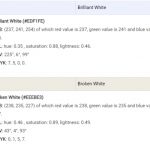Fintech is a very broad term that covers many different industries and topics. The definition of fintech varies depending on who you ask, but there are some common themes.
Table of Contents
What is Fintech?
Fintech can be defined as an industry or business that utilizes technology for financial purposes. This could include everything from mobile banking to automated trading programs. With the rise in popularity of online banking, it’s no surprise that more people are looking at ways to improve their finances with the help of technology!
Fintech is a term for financial technology. Fintech in its most basic form can be defined as the application of new technologies to enhance or replace traditional banking services with more convenient, cost-effective, and efficient methods.
Fintech is the future of finance. It’s disruptive, innovative, and changing the way we do business. From mobile payments to digital currencies, fintech has created new ways for us to manage our money.
Fintech is not just for businesses, however. Individuals can also take advantage of fintech to better manage their finances.
- Services like budgeting apps, automated savings plans, and automated investments can be used to help people save, invest, and manage their money more efficiently.
- Fintech can be used to make payments more secure, as well as to facilitate transactions among different financial institutions.
Different Types of Fintech
There are many different types of fintech, each with its own significance.
- Mobile apps
- Mobile check scanning and deposits
- Online banking
- Electronic statements
- Automatic Investing
- Account syncing with financial apps
- Blockchain
- Bitcoin
- Square payments
- Shopify e-commerce stores
- Robinhood investing
The most trending type and commonly used is mobile banking. Mobile Banking is one of the most popular types of financial technology that’s available to us today. It allows users to make deposits and withdrawals without ever having to step foot in a bank or ATM! That means you can stay on top of your finances even if you don’t have time for traditional banking hours. You’re always connected through an app so it’s as simple as tapping your phone at any location where those services are offered (or “near field communication”).
Blockchain and Bitcoin are new terms in recent years in the finance world. Blockchain is the technology that Bitcoin and other cryptocurrencies are built on. It’s a ledger of transactions, but unlike traditional ledgers, it isn’t stored in one place and instead resides on computers all across the world. The blockchain can only be updated by consensus between participants in the system meaning it’s both secure and highly resistant to outages.
Bitcoin is a type of digital currency created for use in peer-to-peer online transactions as an alternative payment method without the need for third-party organizations like banks or credit card providers. Bitcoins don’t rely on government backing (like US dollars) so they’re not subject to inflationary pressures from central banking authorities when introduced into circulation. They also allow low transaction costs with quick transfers around the globe which make them more reliable for international payments.





